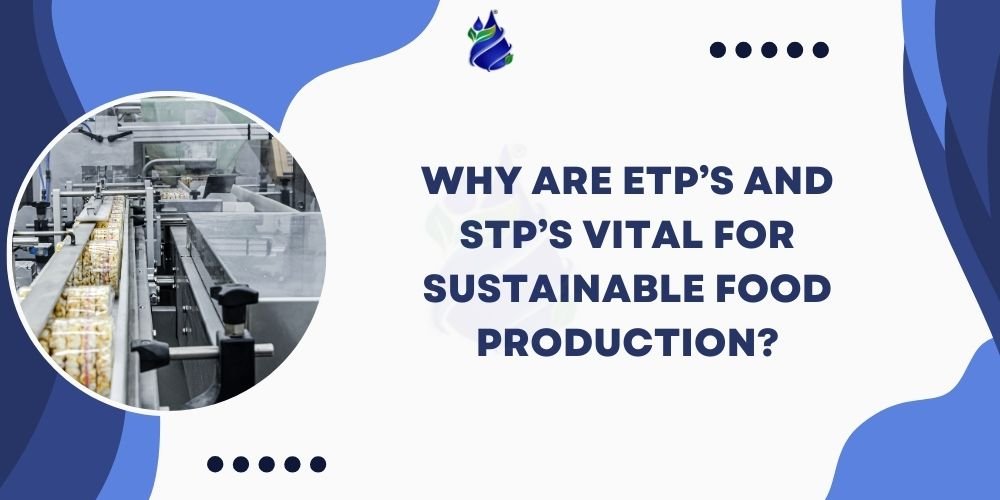
Introduction
In the modern world, wastewater treatment is crucial for several important reasons like Wastewater Management. First, the growing global population is putting tremendous strain on freshwater resources. Water can be recycled and reused thanks to wastewater treatment, which lessens the demand for freshwater resources and guarantees a steady supply for use in industry, agriculture, and drinking. Untreated wastewater also presents serious health hazards. It is full of infections, chemicals, and pollutants that can contaminate sources of drinking water, causing illnesses and harm to the environment. Reducing or eliminating these toxins by efficient treatment methods protects ecosystems and public health.
Another important consideration is environmental conservation along with Water Recycling. When untreated wastewater is dumped into lakes, rivers, or the ocean, it damages aquatic life by eutrophicating the water, destroying biodiversity, and upsetting ecosystems. Wastewater treatment reduces these negative consequences by eliminating contaminants and returning clean water to the environment. Furthermore, effective wastewater treatment contributes to sustainable development goals by encouraging a circular economy, recovering energy and nutrients from waste, and lowering the carbon footprint connected to water pollution.
What is STP and ETP?
The terms "sewage treatment plant" (STP) and "effluent treatment plant" (ETP) are interchangeable. Though they serve different sources and objectives, both are essential in treating various kinds of wastewater.
Sewage treatment plants, or STPs, are primarily responsible for Environmental Protection and managing domestic wastewater produced by homes, businesses, and other similar sources. Sewage, or watery waste from toilets, sinks, showers, and other sanitation facilities, is the main focus of this treatment. To generate treated water appropriate for discharge or reuse, the STP process consists of several phases, including preliminary treatment, primary treatment (removal of solids), secondary treatment (biological treatment to remove organic matter), and occasionally tertiary treatment (further purification).
Conversely, an effluent treatment plant, or ETP, is responsible for managing the industrial wastewater along with Soil Health generated by manufacturing facilities and industries. Industrial effluents need to be treated specifically since they contain a variety of chemicals, poisons, heavy metals, and contaminants. Before discharged water is released into the environment, ETPs use a variety of techniques, including chemical precipitation, filtration, biological treatments, and advanced oxidation, to remove or minimize contaminants.
Advantages of STP and ETP
Numerous benefits that are essential for resource conservation, public health, and environmental sustainability are provided by sewage treatment plants (STPs) and effluent treatment plants (ETPs).
- Environmental Protection: By treating wastewater before it is discharged, STPs and ETPs are essential to maintaining natural ecosystems. By eliminating pollutants, dangerous substances, and pathogens, they contribute to the prevention of water pollution, protecting aquatic life and preserving the quality of water bodies.
- Resource conservation: Water recycling and reuse are made easier by these treatment facilities. Groundwater replenishment and industrial operations are only a few of the non-potable uses for treated water from STPs and ETPs. This promotes sustainable water management techniques and lessens the burden on freshwater resources.
- Benefits to Public Health: These facilities considerably lower the danger of waterborne illnesses and health risks brought on by exposure to untreated wastewater by efficiently treating sewage and industrial effluents. By guaranteeing communities have access to safer water, they enhance public health.
- Regulation Compliance: STPs and ETPs assist towns and companies in adhering to government-mandated environmental standards and regulations. They support ethical waste management techniques and avoid legal ramifications by treating wastewater to these standards.
- Economic Benefits: While the construction and maintenance of STPs and ETPs may require a large initial investment, the long-term advantages of these facilities include reduced environmental impact, enhanced public health, and cost savings through water reuse, all of which support general economic stability.
Why Are ETPs and STPs Vital for Sustainable Food Production
The functions of sewage treatment plants (STPs) and effluent treatment plants (ETPs) is Sustainable Food Production along with maintaining soil fertility, protecting water quality, and assisting with agricultural practices make them essential to the production of sustainable food through Resource Efficiency
- Water conservation: Wastewater is treated by ETPs and Sewage Treatment Plants (STPs) so that it can be used again for agricultural irrigation. This lessens the demand for natural water sources and preserves freshwater resources, particularly in areas where water is scarce. Reusing treated water also helps to promote sustainable crop development by ensuring a more consistent water supply for agricultural demands.
- Soil Health: These plants' treated wastewaters provide nutrients that help improve soil fertility. The nutrients found in treated wastewater can improve soil quality and encourage strong plant development through Nutrient Recovery if they are applied and handled appropriately.
- Reduced Environmental Contamination: Effluent Treatment Plants (ETPs) and STPs treat wastewater from both residential and commercial sources to keep dangerous pollutants and toxins out of agricultural areas. In addition to guaranteeing food safety and lowering the possibility of soil and groundwater pollution, this shields crops from possible contamination.
- Encouragement of the Circular Economy: Using treated wastewater for irrigation results in a closed-loop system that recycles nutrients and water in Agricultural Sustainability. This is in line with the circular economy's tenets of reducing waste and optimizing resource efficiency in the food production process.
Conclusion
Our company, Trity Enviro Solution, is situated in Noida and produces several treatment facilities. Our company leads the treatment plant manufacturing industry. We specialize in manufacturing commercial RO plants, industrial RO plants, sewage treatment plants, water softener plants, and effluent treatment plants. Our RO systems are the best because they incorporate all the most recent technologies. We have constructed the best treatment plants with our years of manufacturing experience and the best technology. In any case, please give us a call at +91 9821030072 or send us an email at enquiry@trityenviro.com if you would like to build up a treatment plant or an RO system for your needs.


